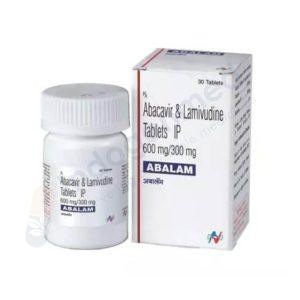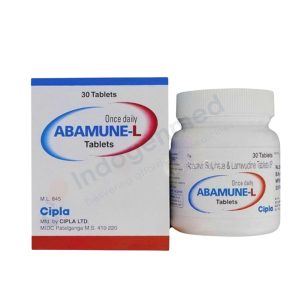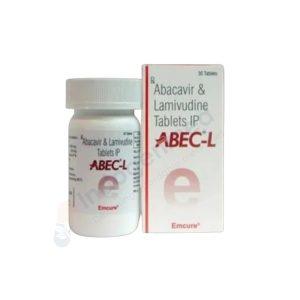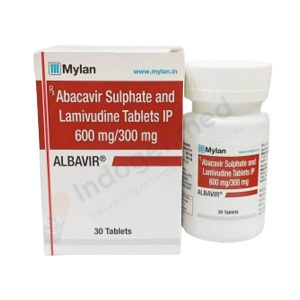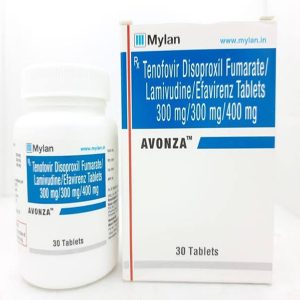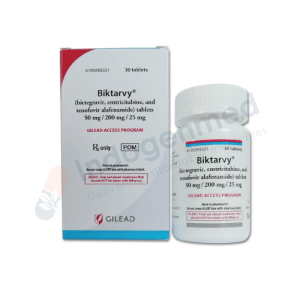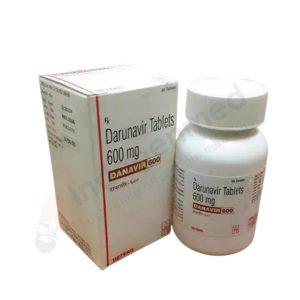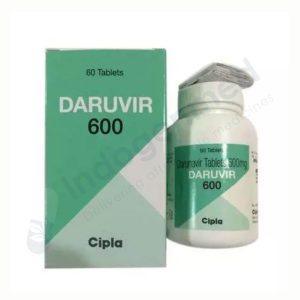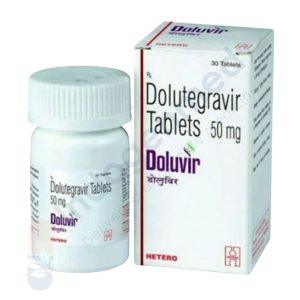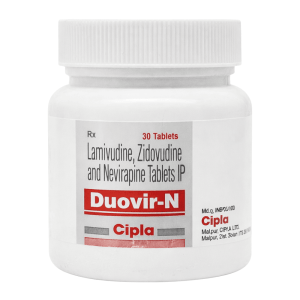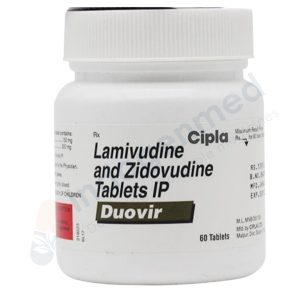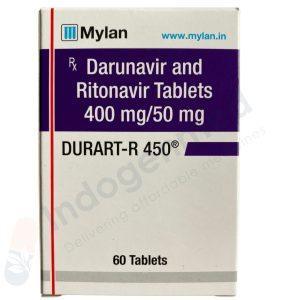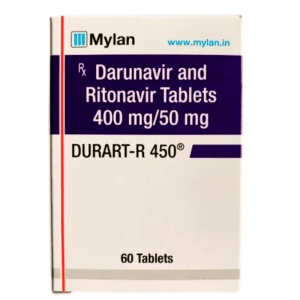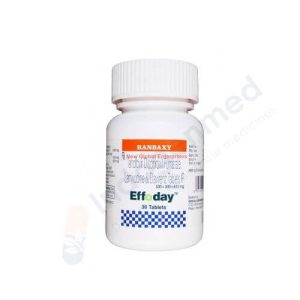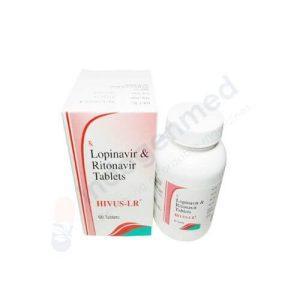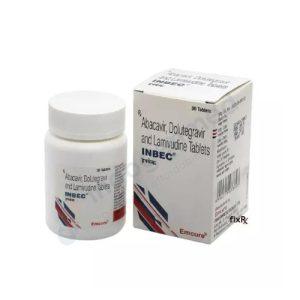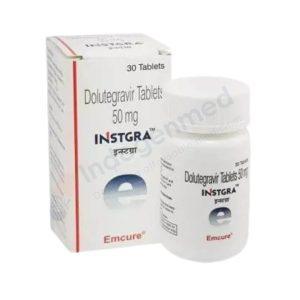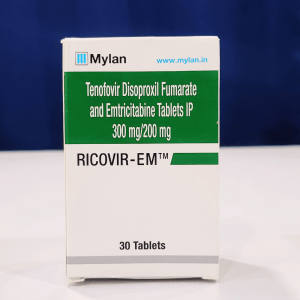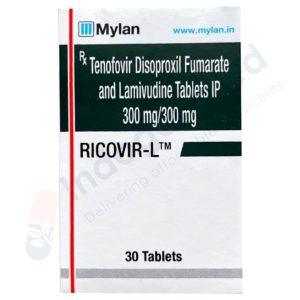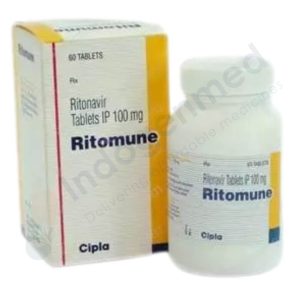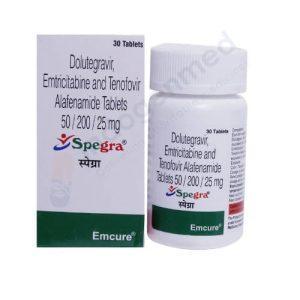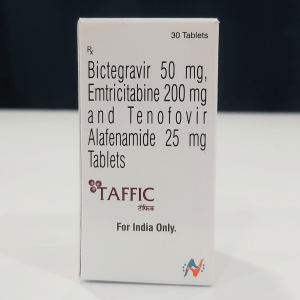Blood Cells are an important constituent of the human immune system. Without proper treatment, HIV can progress to AIDS (Acquired Immunodeficiency Syndrome), a severe condition that significantly compromises the body's ability to fight diseases.
Key Facts About HIV
Since HIV affects the immune system of the body, it leaves a person vulnerable to other infections. Here are some key points about the disease:
HIV and Its Transmission: HIV spreads through specific bodily fluids like blood, semen, vaginal fluids, breast milk, etc.
- The Transmission: The virus is commonly transmitted through unprotected sexual contact, sharing of needles or syringes, and from mother to child during childbirth or breastfeeding.
- Myth: It does not spread through casual contact like shaking hands, kissing, or sharing food.
- Importance of Test: The sole way to know if a person is suffering from HIV is by getting tested.
- Treatment Availability: Antiretroviral Therapy (ART) helps control the virus, enabling individuals to live long, healthy lives. It also reduces the risk of transmission.
- Prevention techniques: There are several prevention techniques, such as using condoms during sexual activities, avoiding needle sharing, and taking preventive medications like PrEP (pre-exposure prophylaxis).
- Absence of Cure: Although there is no permanent cure for HIV AIDS, proper treatment can manage the condition.
Symptoms of HIV
HIV infection progresses through different stages, each with its own set of symptoms. Here is a breakdown of the phases and the symptoms associated with them:
2-4 Weeks of The Infection
Some people may not show any symptoms during this stage. However, those who do may experience:
- High temperature
- Headache
- Muscle and joint pains
- Rash
- Sore throats
- Swollen lymph nodes
- Fatigue
- Night sweats
- Chronic HIV
In this phase, viruses stay active, but their reproductive rate remains low. The individual may experience no symptoms or only mild ones. This stage can persist for several years.
AIDS
This is the most advanced stage, in which a person’s immune system is severely damaged. As a result, the individual becomes highly vulnerable to infections and serious medical conditions, including certain types of cancer.
Some symptoms of this stage include:
- Severe weight loss
- Diarrhea that lasts for over a week
- Sores in the mouth or genitals
- Pneumonia
- Memory loss
- Red, pink, or brown blotches on different parts of the body
- Depression
- Neurological issues
Other kinds of illnesses can cause these symptoms, too. Only a test can confirm the presence of HIV.
Causes of HIV
HIV is caused by a virus that spreads through specific bodily fluids. Understanding its primary modes of transmission is essential for prevention. Here is a presentation of the primary causes.
Sexual Transmission
The most common cause of HIV transmission occurs through unprotected sex with an infected person.
Blood Transmission
The sharing of needles or syringes during drug use significantly increases the risk of infection.
Mother-To-Child Transmission
An infected mother can transmit the virus to her baby during pregnancy, childbirth, or breastfeeding.
Types of HIV
Mainly, there are two types of HIV: HIV 1 and HIV 2. Here is how they are different from each other:
HIV 1
- It is the most common type of HIV in the world.
- The infection spreads fast and is more likely to cause AIDS.
- Further classified into different groups, with Group M accounting for the majority of HIV cases globally.
Group M
- The "M" stands for Major, as it is responsible for most AIDS cases worldwide.
- Experts consider Group M as the main driver of the global AIDS pandemic.
- Group M can be divided into subtypes such as A, B, C, D, F, G, H, J, and K. These subtypes are distributed across different geographical regions.
- Scientific evidence shows that the Democratic Republic of Congo is the origin of Group M.
2. HIV 2
- It is mostly found in Africa.
- Less virulent than HIV-1, meaning it progresses more slowly.
- Less likely to develop into AIDS compared to HIV-1.
- Some antiretroviral medications that work against HIV 1 are not as effective against HIV 2.
Similarities Between HIV 1 and HIV 2
- Both HIV 1 and HIV 2 can cause AIDS by weakening the immune system.
- HIV 1 and HIV 2 are retroviruses and are capable of converting their RNA into DNA to replicate within the host's cells.
- The transmission of both types takes place through similar bodily fluids.
Risk Factors of HIV
Knowing the risk factors of HIV is important to prevent the spread of infection. Here are some key factors that lead to its transmission:
Unprotected Sexual Intercourse
- Having anal or vaginal sex without a condom is a primary cause of HIV transmission.
- People having multiple sexual partners always have the risk of getting infected.
- The presence of sexually transmitted infections (STIs), such as syphilis and chlamydia, can increase the risk of both acquiring and transmitting HIV.
Sharing Needles and Syringes
Sharing needles for drug use can lead to HIV infection by facilitating direct blood-to-blood contact.
Exposure to Blood Products
Although rare in countries with strict blood screening protocols, receiving blood from an infected donor can easily transmit HIV. Additionally, healthcare professionals are at risk of accidental contact with exposed needles that have infected blood, leading to HIV infection.
Mother-to-Child Infection
During pregnancy, childbirth, or breastfeeding, the disease may be transferred to a child.
Social Factor
Poverty and lack of proper education on the subject can put a person at high risk of HIV infection.
Diagnosis of HIV
Experts use various tests to detect the presence of HIV in saliva, blood, or urine. A positive ELISA test confirms the presence of HIV RNA or DNA in the body. Here are some other tests that doctors conduct to confirm HIV infection:
Antibody Tests
It is a quick method to analyse the antibodies that the body produces to fight HIV. These tests analyse oral fluid or blood for a faster diagnosis.
Antibody/Antigen Tests
Widely used in laboratories, these tests detect both HIV antibodies and antigens. Since antigens appear before antibodies, this test allows for earlier detection.
Nucleic Acid Tests
This test can detect the presence of the virus in the blood. It is accurate and can detect HIV quickly. However, due to its high cost, it is not commonly used for routine screening
Home Tests
These provide a private way to check for HIV. However, professional confirmation is recommended after a positive result.
Prevention of HIV
There are effective exercises that can help in preventing the spread of this disease. Here are some methods that can help in stopping HIV transmission:
Protected Sexual Practices
- The proper use of condoms and other safe sex practices can drastically reduce the spread of infections.
- People should consider limiting or reducing the number of their sexual partners to lower the risk of HIV transmission.
- Regular STI screenings can help detect and treat infections early, reducing the risk of HIV transmission.
Pre-Exposure Prophylaxis (PrEP)
- PrEP involves taking daily medications to prevent the spread of infection.
- One must take PrEP according to the healthcare provider’s prescription.
- This solution is particularly beneficial for individuals at high risk of HIV infection.
Post-Exposure Prophylaxis (PEP)
- PEP involves taking the medication after potential exposure to HIV.
- People must start taking the medication within 72 hours of the exposure.
- PEP is intended for emergency situations, such as unprotected sex, needle-sharing, or occupational exposure.
Assessment and Treatment
- Regular physical assessments can help in the early detection of the virus
- Antiretroviral Therapy (ART) reduces the virus to undetectable levels, effectively preventing transmission and helping individuals maintain a healthy immune system.
Preventing Mother-to-Child Transmission
Antiretroviral Therapy during pregnancy can reduce the risk of the child getting infected.
The use of feeding options, such as formula, can reduce the risk of infection through breastfeeding.
Specialists to Visit For HIV
Upon the detection of HIV, people can get in touch with several specialists for support. Here is a list of such professionals:
Infectious Disease Specialist
An infectious disease specialist specialises in the management and diagnosis of diseases such as HIV. They also treat complications such as pneumonia and other infections that may arise due to a weakened immune system.
Nurses
Nurses play a vital role in primary HIV care by providing essential support and coordinating with doctors throughout the treatment process. They also assist in patient education, administer medications, and collect blood samples for necessary tests.
Pharmacists
Pharmacists collaborate with the healthcare team to develop an effective medication plan, ensuring proper dosage, managing drug interactions, and supporting adherence to HIV treatment.
Mental Health Provider
A holistic treatment of HIV requires the well-being of both body and mind. A lot of individuals suffering from this disease have depression. Hence, a care team is required, consisting of psychologists and other mental health experts.
Nutritionist
Consuming the right food is necessary to recover from any kind of disease. It is not very different in the case of HIV. This is where a nutritionist comes in and creates a meal plan for the patient.
Dentist
HIV can cause sores in the mouth and gums, increasing the risk of infections and complications. Regular dental check-ups help prevent tooth decay, manage oral health issues, and reduce the risk of further infection.
Social Worker
Social workers can answer all the queries an individual may have regarding the disease. They provide support and can educate a sufferer on how to manage this medical condition.
Case Manager
A case manager assists individuals living with HIV by coordinating their healthcare needs. They work closely with physicians and other healthcare providers to ensure comprehensive medical, physical, and mental health support.
Immunologists
Immunologists focus on disorders that are related to the immune system. They manage HIV-related immune system problems.
Pediatricians
Pediatricians specialize in caring for children, including those living with HIV. They provide medical treatment, monitor the child’s overall health, and manage any complications to ensure their well-being.
Treatment Options For HIV
Although there is no cure for HIV, treatments are available to help a person live a healthy life. The primary therapeutic treatment for this disease is the use of ART. Here is the breakdown of various treatment options:
Antiretroviral Therapy
- Goal: The objective of using ART is to suppress the action of the virus and boost the immune system.
- Medication: ART is taken daily according to the prescription.
Types of Antiretroviral Drugs
- Nucleoside Reverse Transcriptase Inhibitors
- Non-Nucleoside Reverse Transcriptase Inhibitors
- Protease Inhibitors
- Integrase Inhibitors
- Fusion Inhibitors
- CCR5 Antagonists
- Post-Attachment Inhibitors
Monitoring and Management
This treatment technique involves activities such as testing the effectiveness of ART and monitoring the immune system's condition. In this stage, physicians help the sufferers to manage the side effects of ART.
Research for Future Treatments
Long-Acting Injectables: Ongoing research is focused on developing long-acting ART injections, which aim to reduce the need for frequent medication intake and improve treatment adherence.
Gene Therapy: Researchers are looking for gene therapy techniques to address the treatment of HIV.
Vaccine Development: Scientists are working to develop a vaccine for this disease.
Home Care and Lifestyle Changes
Leading a normal life is not impossible with HIV. Paying attention to the doctor’s advice can help a person stay healthy. Lifestyle changes can positively impact a sufferer’s health and help him to live longer. Here are some key steps to achieve a good lifestyle:
Taking Prescribed ART
Administering ART according to a doctor’s prescription is quite effective in suppressing the viral effects. Careful consumption will prevent drug resistance and let a person live a healthier life.
Following a Healthy Diet
Maintaining a healthy diet supports the immune system. Food suggestions may include fruits, vegetables, and whole grains.
Exercising Regularly
Regular exercise helps individuals with HIV stay fit, strengthen their immune system, and reduce the risk of depression, improving overall well-being.
Stress Management
Managing stress is crucial because it can affect the immune system. Techniques like yoga and meditation can help in reducing stress in such conditions.
Adequate Rest and Sleep
Sufficient rest is a must to ensure that the immune system is functioning properly.
Avoiding Smoking and Alcohol Consumption
Excessive smoking and alcohol consumption compromise the health of the immune system.
Taking Care of Mental Health
It is normal for people suffering from HIV to live an emotionally challenging life. In such a scenario, they can consult mental health experts to improve their lives.
Vaccinations
People having weak immune systems must keep themselves updated with the dates of their vaccinations.
Complications of HIV
HIV weakens the immune system, reducing the body’s ability to fight infections and diseases. Without proper treatment, the condition can progress to AIDS and lead to severe health complications. Here are some potential complications that may arise without treatment:
Opportunistic Infections
These illnesses are more severe in individuals with HIV due to their weakened immune systems, but are typically less critical in those without the virus. They include:
- Pneumocystis Pneumonia
- Candidiasis
- Cytomegalovirus
- Tuberculosis
- Toxoplasmosis
Cancers
People with HIV have a high chance of suffering from certain types of cancers, such as:
- Kaposi’s Sarcoma
- Lymphoma
- Cervical Cancer
Coinfections
A person suffering from HIV can get infected by more than one disease at a given time. These diseases are known as coinfections. Some coinfections of HIV are:
- Tuberculosis
- Hepatitis B
- Hepatitis C
Neurological Issues
Apart from the immune system, HIV can also affect the nervous system. It may lead to conditions like:
- HIV-Associated Neurocognitive Disorders (HAND)
- Peripheral Neuropathy
- Meningitis
Comorbidities of HIV
Individuals living with HIV are at risk of developing comorbidities, which may arise due to the virus itself, long-term antiretroviral therapy (ART), or lifestyle factors. Here are some common comorbidities that HIV patients may experience:
- Cardiovascular issues
- Metabolic disorders
- Osteoporosis
- Kidney issues
- Liver problems
- Neurocognitive problems
- Mental health disorders
- Cancers
- Age-related disorders
Alternative Therapies For HIV
Not a lot of research has taken place on alternative therapies for HIV. However, some techniques are worth trying for people who are suffering from this disease. These are:
Body Therapies
This includes yoga and meditation, which help in reducing pain. Studies have found that yoga is quite effective in addressing problems of anxiety and depression.
Acupuncture
The technique of acupuncture helps in relaxation and provides relief from nausea and pain. It is a good way to achieve relaxation.
Herbal Medicine
While certain herbal remedies may help support the immune system and overall well-being of individuals with HIV, they should be used with caution. It is essential to consult a healthcare professional before incorporating any herbal treatments, as some may interact with antiretroviral therapy (ART).
Massage Therapy
A good massage therapy session can provide relief and improve mood. It is also a very nice way to get rid of muscle tension.
Frequently Asked Questions
Can a person with HIV live a normal life?
Although HIV is not curable, it can be managed using several techniques. People using such strategies can lead long and normal lives.
How does HIV transmission take place?
HIV is transmitted through bodily fluids such as semen, blood, vaginal fluid, and breast milk.
How do I stop worrying about HIV?
You can consult with mental health experts and speak to your near ones. It will empower you to fight this condition.
What is the myth regarding HIV?
The most popular myth regarding HIV is that it spreads through hugging, kissing, and sharing food.
What happens if you have HIV?
If left untreated, HIV can progress to AIDS within 8–10 years, marking severe immune system damage and increased vulnerability to infections and diseases.
What are some of the symptoms of HIV?
Early symptoms of HIV can resemble the flu, while later stages may involve significant weight loss, fatigue, and a weakened immune system.
How long can you live with HIV without knowing?
A person can have an asymptomatic HIV infection for 10 years without knowing. A test can help them confirm the disease’s presence.
How does HIV differ from AIDS?
HIV, meaning Human Immunodeficiency Virus, is responsible for the disease AIDS. AIDS is the final and most severe stage of HIV infection.
How did HIV start?
Researchers believe that HIV originated in West Equatorial Africa, where hunters were exposed to infected chimpanzee blood in the early 20th century. These chimpanzees are considered the source of the virus.
What is the diagnosis process of HIV?
HIV can be diagnosed by testing oral fluid or blood to detect the presence of antibodies and antigens.
How do I stop HIV?
You can stop HIV by following some simple rules, such as having protected sex and never sharing needles and syringes with others.
What is ART?
ART or Antiretroviral Therapy is a combination of medications that prevent HIV replication, helping to maintain a low viral load and protect the immune system.
Take control of your health and check out the wide range of HIV treatment options available at Indogenmed today!
PrEP
PrEP (Pre-Exposure Prophylaxis) is a medicine that lowers the risk of HIV infection upon exposure. If you are at risk of HIV exposure, incorporating PrEP into your routine can be a vital part of maintaining your sexual health and harm reduction strategies, particularly if you inject drugs.
This medicine is safe to use and works very well if used as prescribed. PrEP is available in two basic forms, i.e., as an oral medication to be consumed daily or as an injection (once a month).
To determine if PrEP is right for you, approach your healthcare professional and talk about your sexual history, behaviou,r and drug use practices. They will recommend doses according to your ability to take PrEP.
Key Facts About PrEP
The following are some of the most important facts and information you must keep in mind regarding PrEP:
- PrEP is a safe-to-consume daily pill that reduces the risk of HIV infection. It belongs to a class of antiviral drugs called nucleoside/nucleotide reverse transcriptase inhibitors (NRTIs).
- Before starting PrEP, or at least once every 2 to 3 months while you are taking the medication, you should undergo an HIV test to ensure you are HIV-negative.
- PrEP is specifically designed for adults and adolescents without HIV but at risk of exposure to HIV through sexual contact or injection drug use.
- While PrEP lowers the chances of getting infected with HIV, it does not prevent pregnancy or other sexually transmitted infections (STIs). Condoms play an essential role in this regard.
- In late 2019, PrEP was introduced as a public health initiative in the Latin America and the Caribbean (LAC) countries. Additionally, 12 other countries are also planning to implement PrEP as a part of their HIV prevention strategies, supported by increased funding.
- By 2020, the goal was to have 200,000 people using PrEP in the LAC countries, highlighting the commitment to expanding access to HIV prevention in the region.
Side Effects of PrEP
Pre-exposure prophylaxis (PrEP) is a widely used medication for reducing the risk of HIV infection.
PrEP medicine is usually well-tolerated, but like any medication, it can cause side effects in some individuals. Usually, most of these side effects are mild and may diminish after the first few weeks.
Below is an overview of common and serious side effects:
Common Side Effects
The following side effects may affect more than 1 in 100 people taking PrEP. These typically resolve over time and are often temporary:
- Bloating and indigestion
- Nausea or vomiting
- Headache
- Diarrhea
- Insomnia
- Dizziness or feeling weak
- Serious Side Effects
Serious side effects from PrEP are rare, but they can occur. Some of the more significant concerns include:
- Kidney Function: PrEP, at times, affects the functioning of your kidneys. Doctors typically prescribe conducting kidney tests before and after the treatment.
People aged 50 or older, or those with pre-existing kidney conditions, may be at higher risk for kidney-related side effects. - Bone Health: Although rare, this medication also affects your bone health, especially if you have bone mass density loss (BMD).
It is crucial to note that the benefits of taking PrEP outweigh the risks of potential side effects, especially when it is used as part of an HIV prevention strategy.
Types of PrEP
The different types of PrEP are classified as follows:
- Truvada: This PrEP pill is a daily oral pill consisting of two medications that enable the blocking of enzymes, thereby preventing the virus from spreading to other tissues. This particular type of PrEP is suitable for everyone.
- Apretude: Apretude is an injectable form of PrEP. Initially, two injections are given within one month to help establish protection. After the initial doses, Apretude is administered every two months as a maintenance injection.
- Descovy: This is also a daily pill that prevents the virus from reproducing. Descovy comprises a different set of medications. However, Descovy is currently only approved by the World Health Organisation (WHO) for use in cisgender men and transgender women.
Risk Factors of PrEP
Several studies have suggested that the majority of individuals taking pre-exposure prophylaxis (PrEP) face potential risks related to renal and bone health. Around 62% of the population taking PrEP are at risk of kidney issues, while 68% experience bone-related concerns. When excluding age factors, approximately 46% of individuals have renal risk factors, and 56% have bone-related risk factors.
The table below displays the risk factors according to age, concomitant medication, comorbidity, and other clinically related measures. These risk factors are most commonly observed in individuals prescribed oral PrEP:
| Renal Risk Factors | Bone Risk Factors |
| Age-related Risk Factors | |
| Age >40 years at index date (functional decline) | Age <25 years at index date (rapid bone growth) |
| Age >50 years at index date (osteoporosis) | |
| Medication-related Risk Factors | |
| Chronic NSAID use | Selective serotonin reuptake inhibitors |
| Tricyclic antidepressants | Proton pump inhibitors |
| Atypical antipsychotics | Anti-epileptics |
| Lithium | Corticosteroids |
| Haloperidol | Statins |
| H2 blockers | |
| Opioids | |
| Barbiturates | |
| Comorbidity-related Risk Factors | |
| Chronic kidney disease | Hypogonadism |
| Focal segmental glomerulosclerosis | Hypothyroidism, hyperthyroidism, or hyperparathyroidism |
| Acute kidney injury | Diabetes mellitus |
| Hydronephrosis | Fracture |
| Acute tubular necrosis | Osteopenia/osteoporosis |
| Pyelonephritis | Psoriasis |
| Renal tubular acidosis | Rheumatoid arthritis |
| Diffuse cortical necrosis | Gastric bypass surgery |
| Acute interstitial nephritis | Ankylosing spondylitis |
| Renal papillary necrosis | Ulcerative colitis |
| Eating disorders | Growth hormone deficiency |
| Hypertension | Crohn's disease |
| Vitamin D deficiency | Hemochromatosis |
| Tobacco abuse | Multiple sclerosis |
| Sickle cell disease | Celiac disease |
| Methamphetamine abuse | Hypercoagulable states |
| Opioid abuse | Idiopathic thrombocytopenic purpura |
| Cocaine abuse | Systemic lupus erythematosus |
| Marijuana abuse | Primary biliary cirrhosis |
| Alcohol abuse | Primary sclerosing cholangitis |
| Beta thalassemia major | |
| Multiple myeloma | |
| Acromegaly | |
| Systemic macrocytosis | |
| Graft-versus-host disease | |
| Tobacco abuse | |
| Alcohol abuse | |
| Methamphetamine abuse | |
| Clinical-related Risk Factors | |
| Impaired renal function (eGFR <90 ml/min) | Underweight or obese (BMI <18.5 or ≥30.0 kg/m2) |
Preliminary Evaluation Before Starting PrEP
Before getting started with PrEP medications, it is essential to undergo a thorough medical evaluation for HIV. The healthcare providers assess the risk of an individual getting affected by HIV by considering factors such as:
- Injectable drug use
- Sexual behaviours
- HIV status of their partner.
The key tests conducted during this assessment include:
- HIV screening to confirm the status of HIV
- Kidney function tests
- Tests for sexually transmitted infections (STIs)
In addition to these initial tests, follow-up visits are recommended to monitor side effects and closely track kidney function. These steps ensure the safety and effectiveness of PrEP, helping individuals start their prevention journey with confidence.
Treatment Options of PrEP
You can take PrEP medication as a single daily tablet, either orally or by injection. The following treatment options help to prevent HIV among adults and adolescents with a weight of at least 77lb:
- PrEP with F/TDF (Emtricitabine/Tenofovir Disoproxil Fumarate) is recommended to be taken as an oral medication daily to prevent HIV disease among people who engage in high-risk sexual behaviors or inject drugs.
- PrEP with F/TAF (Tenofovir Alafenamide) is recommended to be taken orally to reduce the chances of HIV through sexual transmission. This, however, excludes individuals who are prone to getting infected with HIV through vaginal sex.
- PrEP with CAB (Cabotegravir) in injectable form prevents sexual transmission of HIV among all categories of people. This form of PrEP is administered as an intramuscular injection every two months.
Home Care and Lifestyle Changes When Consuming PrEP
You can lead a normal lifestyle while infected with HIV. Consult your healthcare professional and take the necessary steps to remain healthy. Here are some lifestyle changes you should bring about:
Healthy Eating
A balanced diet plays a crucial role in managing medication side effects, maintaining a stable weight, and supporting your immune system. Make sure to include nutrient-rich foods in your diet that include lean meat, whole grains, fruits and vegetables, fatty fish, nuts and seeds, beans and lentils.
Stay Active
Involve yourself in regular physical activities to boost your mood and reduce medication side effects. Exercise helps support your immune system, promotes better sleep, and can reduce symptoms of depression.
Get Enough Sleep
The majority of HIV-affected patients face trouble sleeping. With the right treatment, you can get a good rest at night. Follow sleep hygiene practices, such as maintaining a regular sleep schedule, creating a calm and quiet sleep environment, and considering cognitive behavioral therapy for insomnia (CBT-I) if needed.
Quit Smoking
As and when you are affected with HIV, make sure to quit smoking. Cigarette smoking is not just bad for your health, but it makes the treatment process even more difficult. It also raises other health problems relating to bacterial pneumonia, lung cancer, heart disease, high blood pressure, and others.
Alternative Therapies of PrEP
PrEP is the primary prevention against HIV, but there are other alternative therapies as well. These include:
- Use of Condoms: The use of condoms is a must, as it is a great barrier towards the prevention of HIV and other STIs.
- Vaginal Rings: Vaginal rings and topical gels with antiretroviral properties are options designed for women at risk of HIV.
- Exchange of Needles: For individuals who inject drugs, using clean needles is critical in reducing the risk of HIV transmission.
- These alternative methods, when used alone or in combination with PrEP, can be highly effective in reducing the risk of HIV transmission.
Frequently Asked Questions
What is the meaning of PrEP?
Pre-exposure prophylaxis (PrEP) is an HIV medication that individuals consume to lower their chances of getting infected by HIV. The World Health Organization (WHO) currently recommends daily PrEP for both men and women who are at high risk of acquiring HIV.
Who is restricted from using PrEP?
Individuals who are already HIV-positive should not take PrEP and should instead begin antiretroviral therapy (ART) to manage their HIV.
Additionally, people with kidney disorders should consult their healthcare provider before using PrEP, as it can impact kidney function, particularly with long-term use.
Where is PrEP available?
PrEP is becoming more widely available, but it may not be offered in all clinics. Since it is a new treatment, you may also ask your local clinic to assist you in finding PrEP.
Is the use of condoms necessary while taking PrEP?
The use of condoms is not necessary while taking PrEP. However, condoms provide you with additional protection against HIV and also safeguard you from other sexually transmitted diseases and unplanned pregnancies.
Will PrEP affect my contraception?
No, PrEP does not interfere with any form of contraception, including emergency contraception or the combined pill.
Are there chances of losing or gaining weight while taking PrEP?
While taking PrEP, you might experience a slight loss in weight or sometimes a weight gain. Make sure to have proper meals without increasing the portion sizes. Doing exercises regularly will also help maintain a stable weight over time.
What might happen if I stop taking PrEP?
If you stop taking PrEP, you will no longer be protected against HIV. If you are still at risk of HIV exposure, it is important to either restart PrEP or consider alternative prevention strategies. Always consult with your healthcare provider before stopping or changing your PrEP regimen.
Are there any long-term side effects of PrEP?
Most people tolerate PrEP well, but long-term use can sometimes affect kidney function, which is why regular kidney tests are required before and during treatment. Additionally, bone mineral density (BMD) loss may occur, although this is rare. If you have concerns, discuss monitoring options with your healthcare provider.
Is it necessary to avoid driving or riding a bike while consuming PrEP?
Within the first few weeks of consuming PrEP, you might feel dizzy. Do not drive a car or ride a bike during the first few days.
Shop for trusted medications, including PrEP and other health essentials, from the comfort of your home. Fast, reliable delivery and expert customer support. Order now and take control of your health today!

